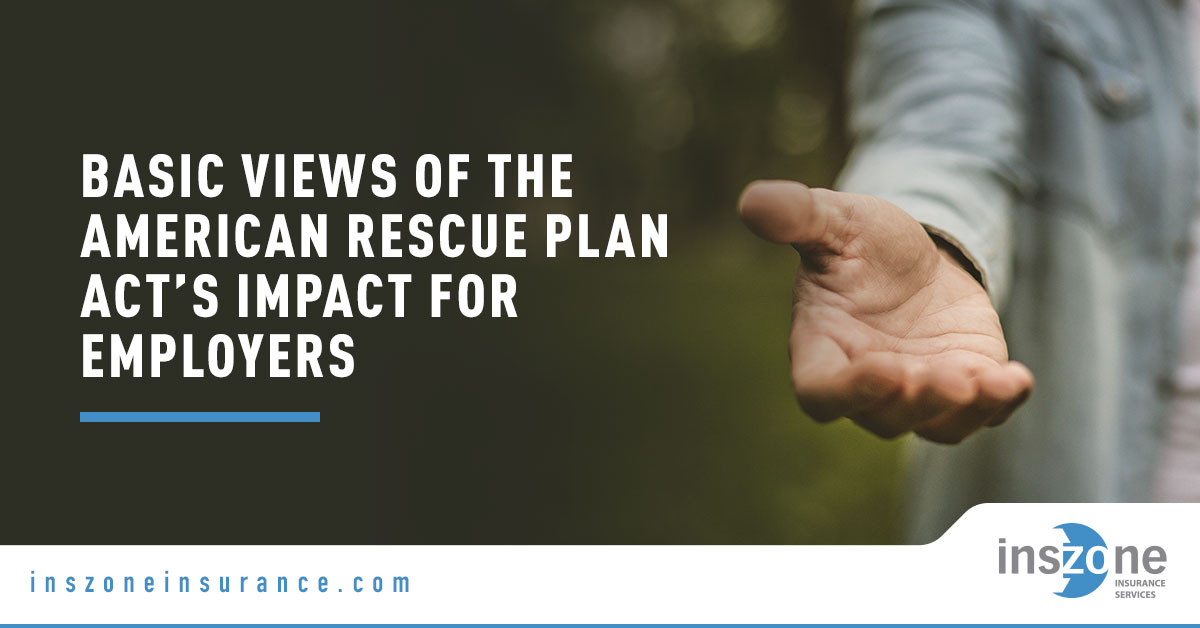On March 11, 2021, The American Rescue Plan Act (ARPA) was signed into law. The law extends the incentive to employers for COVID-related reasons. ARPA provides nearly $2 trillion of monetary relief for individuals and business sectors that were impacted by the COVID-19 pandemic, and contains several important provisions that specifically impact employers:
1. Tax Credits and Leaves
As a response to the pandemic, the US Congress enacted the Families First Coronavirus Response Act (the FFCRA), which requires businesses (who have fewer than 500 employees) to provide up to two weeks of paid leave under the Emergency Paid Sick Leave and up to ten weeks of paid Family Leave, covered by the Emergency Family and Medical Leave Act, (EFMLA) to employees who are unable to work due to COVID-19 related reasons. In turn, the FFCRA gives employers a corresponding payroll tax credit that helps offset the employer’s costs for providing the paid leaves.
On December 31, 2020, the FFCRA expired, and employers are no longer required to provide Extended Family or Emergency Paid Sick Leaves. During this time, the US Congress enacted the Consolidated Appropriations Act of 2021, (CAA) which extends the payroll tax credits (with some modifications) for employers who voluntarily chose to provide paid leaves as mentioned under the FFCRA framework.
With further amendments, the ARPA extends these tax credit programs until September 30, 2021, and in particular:
- Paid Family Leave
The ARPA removed the requirement that the first 2 weeks of a family leave is unpaid. Employers can voluntarily provide up to 12 weeks (from the previous 10) of paid family leave per employee.
The cap of refundable tax credits (per employee) has increased from $10,000 to $12,000.
The additional 2 weeks of paid family leave, and the $2,000 tax credit, can be used between April 1, 2021, and September 30, 2021.
- Paid Sick leave
The ARPA provides refundable tax credits to employers , per employee who has used, or is qualified for sick leave, for up to a period of 10 days from April 1, 2021 to September 30, 2021. Regardless of whether the employee has used any sick leave benefits under the FFCRA and CAA programs, and with no carryover of unused days before April 1, 2021.
The ARPA also expands the scope of the covered reasons for which employees can be qualified for the benefit to also include the following:
-
- Getting a COVID-19 vaccine
- Recovering from side effects of the vaccine
- Waiting for the results of a COVID-19 test or diagnosis because the employee has been exposed or the employer required the test.
- Creditable Taxes
ARPA expands the tax credits to include the cost of an employer’s collectively bargained contributions to a benefit pension plan.
Also, the ARPA permits the IRS (Internal Revenue Service) to waive penalties for employers who fail to deposit “applicable employment taxes” if the failure to deposit such taxes is due to an anticipated credit (Thomson Reuters).
- Non-Discrimination Requirements
ARPA requires that employers apply their voluntary sick and paid family leave policies in a neutral manner to become eligible for any applicable tax credits. “ARPA disqualifies employers from receiving a tax credit if they violate FFCRA, such as the anti-retaliation provisions, or violate the nondiscrimination rules by administering FFCRA paid leave benefits in a discriminatory fashion in favor of highly compensated employees, full-time employees, or employees with greater seniority” (National Law Review).
2. Cobra Coverage Subsidies
COBRA continuation subsidies allow employees who lost coverage (because of a qualifying reason) to continue their health benefits for up to 18 months. Since employees are typically responsible for bearing the costs of the extended premiums that were covered by COBRA, ARPA provides a 100% subsidy for up to 6 months of health insurance premiums under COBRA. This subsidy covers eligible employees who lost insurance coverages due to involuntary reduction of hours or involuntary termination. The subsidy runs from April 1, 2021, to September 30, 2021.
Take note that the subsidy does not allow an extension of the employee’s maximum period of COBRA coverage but allows qualified employees to retain COBRA coverage at no cost during the subsidy period.
3. Short-Time Compensation Programs and Employee Retention Credits
ARPA has provisions that are intended to encourage employers to enact Short-Time Compensation (STC) programs instead of laying off employees. ARPA extends the reimbursement provisions of the CARES ACT and permits reimbursement for 100% of unemployment benefits paid out until September 6, 2021 (pursuant to STC programs).
For companies that have less than 500 employees, ERCs are generally available for all employees and for employers that have more than 500 employees, ERCs are only available for employees who have been furloughed.
However, ARPA allows businesses that are “severely financially distressed” employers with more than 500 employees to claim for ERCs for all employees for the third and fourth quarter of 2021.
For further details of the American Rescue Plan, you can visit the US Department of Labor. For more details of a comprehensive business insurance contact Inszone Insurance now!





